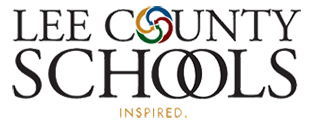Tonnette Wicker is a collaborative math teacher that has blossomed using AVID (Advancement Via Individual Determination) strategies across a 17 year career in education. She began her time at Lee County Schools in 2008 at East Lee Middle School and transferred to SanLee Middle in 2016 as the school was preparing to make a push to be an AVID National Demonstration School.
 She is a consistent force in math instruction at SanLee and is known for doing the hard work to build relationships with students that provide a foundation to challenge them to reach their best. Some of her proudest moments come in the toughest challenges, because those challenges build strong bonds and strong students. When you are with Ms. Wicker, you are never far from a smile (or a bag of Plain Lays Potato Chips!). We hope you will take a few minutes to hear from Ms. Wicker on her time here at SanLee Middle School and learn from her experience in the classroom.
She is a consistent force in math instruction at SanLee and is known for doing the hard work to build relationships with students that provide a foundation to challenge them to reach their best. Some of her proudest moments come in the toughest challenges, because those challenges build strong bonds and strong students. When you are with Ms. Wicker, you are never far from a smile (or a bag of Plain Lays Potato Chips!). We hope you will take a few minutes to hear from Ms. Wicker on her time here at SanLee Middle School and learn from her experience in the classroom.
JOIN THE LCS FAMILY | APPLY NOW!
Q: What are some of your most memorable moments from your time in Lee County Schools?
Wicker: My most memorable moments in Lee County are teaching through COVID, winning the math award, and helping SanLee become a National AVID Demonstration School.
Teaching through COVID forced me to learn new ways to teach and new ways to make relationships with the students. COVID forced me to become creative with my lesson plans in ways I never thought about doing. I still use some of those methods.
Last year I was given the Outstanding Teacher Award for Math. Math was not an easy subject for me, and I didn’t think I would be a good teacher. My goal was to teach ELA. However, I had a professor who told me the best way to learn math is to teach math. He was so right. I am able to sympathize with the students when they are struggling or frustrated. I believe having gone through what they are feeling, makes me better at reaching and teaching them.
While SanLee was preparing to become a National AVID Demonstration School, I had a lot of visitors in my classroom. Sometimes fifty people within one day. They wanted to learn how to implement Collaborative Study Groups in their classrooms. The AVID team was so impressed with what I was doing and how I was applying the strategies and group formations. On several occasions, they would ask me for advice and take some of my ideas back with them.
Q: What about the district makes it a special place to work?
Wicker: Through the district’s support of AVID, I have been able to grow as a teacher. Betsy Bridges gave me the opportunity to work on collaborative study groups. This was something I had always wanted to do, but was unsure how to implement. She encouraged me as I worked to create an environment that would teach students to work together and become problem solvers. Collaborative Study Groups is about allowing students to teach and the teacher facilitates. I have watched students who were shy grow into leaders and become teachers of the concepts they really understood.
Q: What has been the most rewarding aspect of watching students grow and succeed during your time at Lee County Schools?
 Wicker: The most rewarding aspect of watching my students grow and succeed is the smile on their faces when they realize their accomplishments. It is amazing how they enter my room thinking that they are not good at math, but soon I hear them saying, “I am so smart.” When they take their EOG and pass for the first time, or when they see their growth score; the students will say, “I did good!” My response is, “Yes, you did, and you made me look good. I am so proud of you.”
Wicker: The most rewarding aspect of watching my students grow and succeed is the smile on their faces when they realize their accomplishments. It is amazing how they enter my room thinking that they are not good at math, but soon I hear them saying, “I am so smart.” When they take their EOG and pass for the first time, or when they see their growth score; the students will say, “I did good!” My response is, “Yes, you did, and you made me look good. I am so proud of you.”
Q: What have you learned over the years that you would like to pass on to the next generation of educators and staff members?
Wicker: I have learned that there will be days when you question your decision to become a teacher. You might wonder if you are making a difference. At the end of the day or the end of the year, you will see the impact you have made in a student’s life. Students will return each year to see me or I will see them in the stores. They always speak, and I am always glad to see how they have matured. It is wonderful to hear about their successes. I have former students who are now educators and social workers, and I realize that I was a part of shaping their future and helping them reach their goals.


